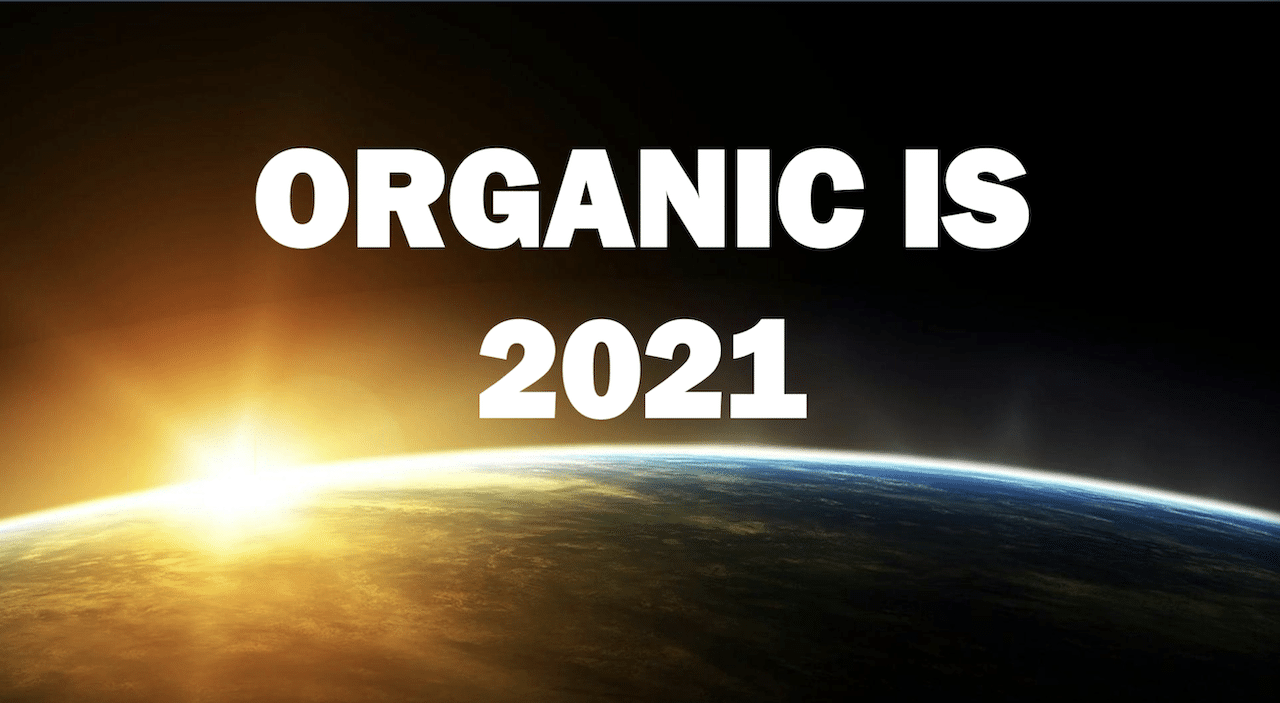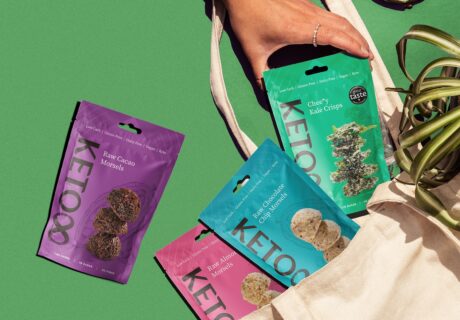In the Organic Trade Board’s (OTB) AGM & Annual Members Briefing on 17 March a number of topics concerning the organic sector were covered including export, membership figures, Kantar data and marketing messaging for 2021.
Adrian Carne, OTB chairman, opened with an address in which he called this ‘a good period for sustainably and ethically produced, organically produced food and drinks’. Following his address, attention turned to the re-appointment of directors, facilitated through members voting in the chat function. Roger Kerr, finance director, Paul Moore, non-executive director and Martin Sawyer, legal director, were each reappointed to their respective roles for another two years, based on a majority vote.
Menna McNiven, food sector specialist working with the Department of International Trade (DIT) then proceeded to detail the launch of a new export promotion campaign called Open Doors. Domestically focused, it aims to ‘encourage UK businesses to open new doors to international opportunities’ and to illustrate how the DIT can support businesses in the process. “The belief is that the trade deals we’re negotiating present a national opportunity for business and also economic growth,” said McNiven. “The DIT can help food and beverage businesses sell to new markets or even export for the first time by offering advice and practical support to help develop your export plans, to understand and identify new market opportunities, connect you with buyers and even explore e-commerce channels.
“The DIT can help businesses get a foothold in foreign markets with specific services such as meet the buyer programmes … and helping you establish contacts and supply chains abroad. At a local level we have regional international trade advisors; we have a large network of very experienced people who can provide guidance and support to specific challenges.” McNiven added that the programme will also offer masterclasses, bespoke webinars and access to e-commerce export advice as well as information about UK export finance and applying for the SME Internationalization Fund.
Paul Moore then gave a brief summary of the OTB’s economic position; he stated that the organization is ‘in a good position financially’ and stressed that it was important to ‘keep the momentum going’.
Cristina Dimetto, OTB general manager – stepping in for William Burgess, membership director – gave an overview of membership renewal figures, revealing that in 2020 the OTB saw over 90% renewal, and in the first quarter of 2021 alone an additional nine new members joined.
In a data overview, Alex McDonald, Kantar analyst, reflected on how organic has ‘overperformed’ – with 89 out of every 100 UK households having bought something organic in the past year – and how the sector can further engage shoppers.
“We’ve got a really strong story to tell. Organic as a sector went into 2020 in a really good place. We saw even more growth in 2020 and in the case of organic that was ahead of conventional grocery,” said McDonald.
“What’s really exciting is … the fact that so much of the growth in the last year in the grocery market has been about trip volumes; we’re shopping less often but we’re buying more when we do. Organic … has managed to not only get into more shoppers’ baskets, it’s managed to increase the frequency with which it’s done so as well. It’s all very encouraging.”
McDonald explained that although organic’s share of the grocery market ‘hovers at about 1%’ Kantar’s data indicates that any ‘peaks’ are a result of Organic September activity. “It’s pretty clear that the work done around Organic September is really important in terms of driving that peak of organic sales. September’s worth an extra £14 million or so, relative to the rest of the year.”
“The other piece I want to draw your attention to, because it will be important later, is the expansible share of Chilled Convenience – far smaller than some of the other sectors … but once we start to look ahead and think about how we can grow organic in the long term [it’s] interesting to consider how much the Chilled Convenience share has advanced. Produce and dairy remain incredibly important. They still account for just about over half our spend.”
When considering shopper targeting, McDonald highlighted ‘super heavy’ shoppers as particularly significant – accounting for almost half of organic spend. “Being top heavy isn’t a bad thing – it’s just a feature of the market that we need to keep in mind as we think about how to grow the category further.”
McDonald said retailers can engage ‘lighter shoppers’ by having a ‘good organic range’ – and not just at the premium end of the market. “It’s something that should be considered throughout. Obviously different groups shop the market in different ways. We know that organic produce has an absolutely vital role.”
Harriet O’Regan, OTB marketing director, finished with an overview of marketing activity in the past year. Describing the sector as ‘united more than ever before’, she said the OTB ‘will deliver our organic story in 2021’. “We believe organic has never been more relevant, more important and more vibrant than it is right now. We have so much to be proud of.” O’Regan cited 14.1% year-on-year growth [source: Kantar] and reported that organic is growing faster than conventional in ten major categories. NPN also learnt that an estimated 18 million people were reached through Organic September campaign efforts.
“We spoke as one sector. We focused on one month. We spoke to our retailers and customers with one voice. We delivered not just listings, sales growth, penetration growth, but we put organic more on the radar than it’s ever been before, and we showed everyone how organic offers an answer to the crisis that we face.
“The pandemic that we worried might reduce our environmental consciousness actually did the opposite. It made us reconnect with the natural world that we rely on and only accelerated our concern over the impact that we are having on it. As a result, we come out of COVID with climate concerns accelerating across our categories, with almost half of consumers wanting to change the way they shop and seek more sustainable solutions.
“What’s really exciting is that right in the middle of Organic September a new conversation was also bubbling around soil health, carbon sequestration and the ability for agroecological and regenerative practices to be an exciting part of the solution to climate change. This conversation is giving organic more relevance and getting us back into the conversation,” said O’Regan.
E-comm and direct-to-consumer have, she noted, seen an ‘incredible rise’ – “This is where … we can tell a story about the farm behind the brand and the person behind the product. Our consumers are changing too … they’re citizens who want to play their part. We’re increasingly seeing a new set of consumers that we’re terming ‘eco-seekers’. They’re making small changes every day to make a difference and to teach their children how to make a difference. This optimism and hope is where organic can be, offering a solution for shoppers who want to do their bit.
“The challenge is … organic just isn’t top of mind when they’re looking for a solution. Despite being here for decades, organic is still undiscovered. We have a huge loyal base … but the majority of consumers buy organic passively, not realizing the difference they are making. 40% of these passive buyers are environmentally conscious. You can see the value gap: if organic were linked clearly to sustainability in their minds, then they would be prepared to pay more for it than they are today. The task is to communicate that organic is better for the planet. We need to tell the organic unique story that’s at our heart: that the answer lies in nature, that organic works with nature, not against it. Organic is what the planet would choose.”
The OTB’s 2021 campaign will continue to use the ‘attention-grabbing headline of Nature has the answer’, said O’Regan. “We’ll again use dramatic and striking images of nature and organic produce with a powerful headline and messaging to communicate our proposition.” She added that in the interests of not using pledger money for photography shoots, the OTB would welcome contributions from any members who may have ‘close-up, high quality’ images of organic produce which can be used in the campaign.
Dimetto added: “Members will also have a wide range of activities where they can get involved, offer their expertise, their stories and their passion.”





